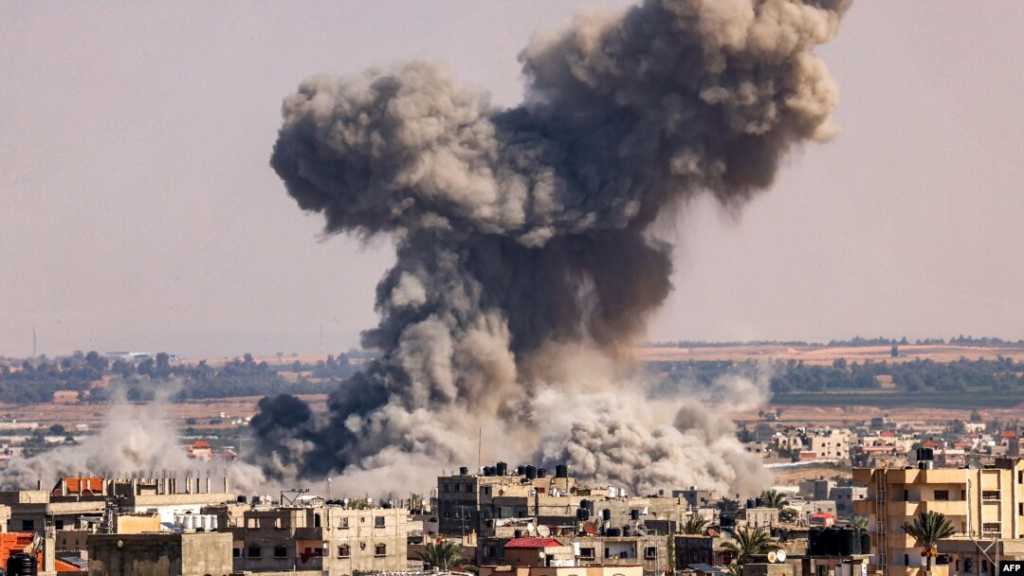Israel has recently intensified its military operations against Iran, launching significant airstrikes targeting Iranian military sites in retaliation for prior attacks.
The Israeli Defense Forces (IDF) confirmed that these “precise strikes” took place early Saturday, following a large-scale ballistic missile attack by Iran on October 1, 2024. The situation is evolving rapidly, with implications for regional stability and international relations.
Massive Explosions in Iran
The backdrop to Israel’s recent airstrikes involves escalating tensions between the two nations. Following a massive missile barrage from Iran that targeted Israel, the IDF announced its decision to respond with military action.
The Israeli government cited “months of continuous attacks from the regime in Iran against the State of Israel,” emphasizing the need for a decisive response. This assertion underscores Israel’s stance on its right to defend itself against perceived threats, particularly in light of the growing capabilities of Iranian military technology.
Read : Israel Accuses 6 Al Jazeera Journalists of Being Hamas Terrorists
Reports indicate that the airstrikes were conducted in waves, with explosions reported in various Iranian regions, including Tehran and provinces such as Khuzestan and Ilam.
The Israeli mission, dubbed “Days of Repentance,” saw a coordinated effort involving dozens of Israeli Air Force aircraft, ranging from fighter jets to reconnaissance planes. This marked a significant escalation in military activity, as the IDF reiterated its commitment to counter threats emanating from Iranian soil.
The IDF targeted specific military installations, including air defense systems and ballistic missile production facilities, which they believe were used in previous attacks against Israel. This methodical approach suggests that Israel is keen on neutralizing any potential threats before they can materialize into further military actions against its territory.
Iranian Response and Reactions
In the wake of these strikes, Iranian officials claimed their air defense systems successfully intercepted many of the incoming attacks, albeit acknowledging “limited damage” to some military sites. Iranian state media reported that the loud explosions heard around Tehran were linked to their air defense systems engaging with Israeli missiles. However, Israeli sources dismissed these claims, stating that the attacks resulted in a “total failure” of Iran’s defense systems.
🚨Breaking: Violent explosions in Iran
— Ram Pal (@PalRam39377) October 26, 2024
First pictures of
Israel's attack has begun and at this stage it is attacking several locations in Tehran with missiles, the second largest oil field in Iran has also been bombed and the Khomeini airport. pic.twitter.com/Oh7VkMwp8L
The Iranian government has characterized Israel’s actions as aggressive and has promised a proportional response to any perceived escalation. Statements from Iranian officials conveyed a warning that Israel would face consequences for its military operations, reinforcing the longstanding rhetoric of mutual hostility between the two nations.
Furthermore, the situation highlights the broader geopolitical dynamics at play. The U.S. administration has urged Israel to exercise caution in its military engagements, reiterating its support for Israel’s right to self-defense while also calling for restraint in targeting certain facilities. This complex interplay of military strategy and international diplomacy continues to evolve as both nations assess their next moves.
Broader Implications for Regional Security
The latest developments are emblematic of a growing cycle of violence that threatens to destabilize the already volatile Middle East region. Israel’s airstrikes represent not only a response to Iranian aggression but also a strategic shift in how it engages with its adversaries.
The IDF’s stated goal of achieving “wider freedom of aerial action in Iran” indicates a willingness to conduct more expansive military operations, which could lead to increased tensions not only with Iran but also with its allies in the region.
Iran’s ballistic missile attack on October 1, which reportedly involved around 200 missiles, caused significant alarm within Israel, forcing many citizens into bomb shelters and highlighting the direct threat posed by Iran’s military capabilities. The cycle of retaliation can escalate quickly, drawing in other regional powers and potentially leading to a broader conflict.
The historical context of these tensions cannot be overlooked. Iran has long supported militant groups such as Hezbollah and Hamas, which have conducted numerous attacks against Israel.
The recent strikes may further embolden these groups, prompting them to retaliate against Israel in solidarity with Iran. Such a scenario could ignite a wider regional conflict, drawing in international actors and exacerbating an already fraught situation.

In conclusion, Israel’s airstrikes against Iranian military targets signify a critical moment in the ongoing conflict between the two nations. As military actions unfold, the ramifications for regional stability, international relations, and the potential for a wider conflict are profound. Both nations are at a crossroads, and how they navigate this turbulent landscape will have lasting implications for the Middle East.
This situation remains fluid, with the potential for rapid escalation or, conversely, opportunities for diplomatic engagement. The coming days and weeks will be pivotal in determining the trajectory of Israeli-Iranian relations and the broader regional security landscape.

